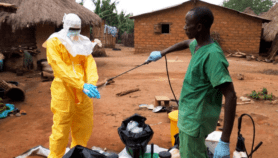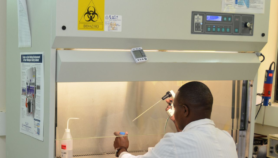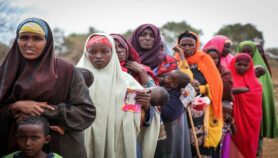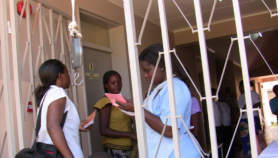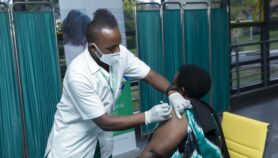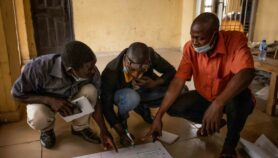04/03/22
Africa’s efforts to boost COVID vaccination intensify
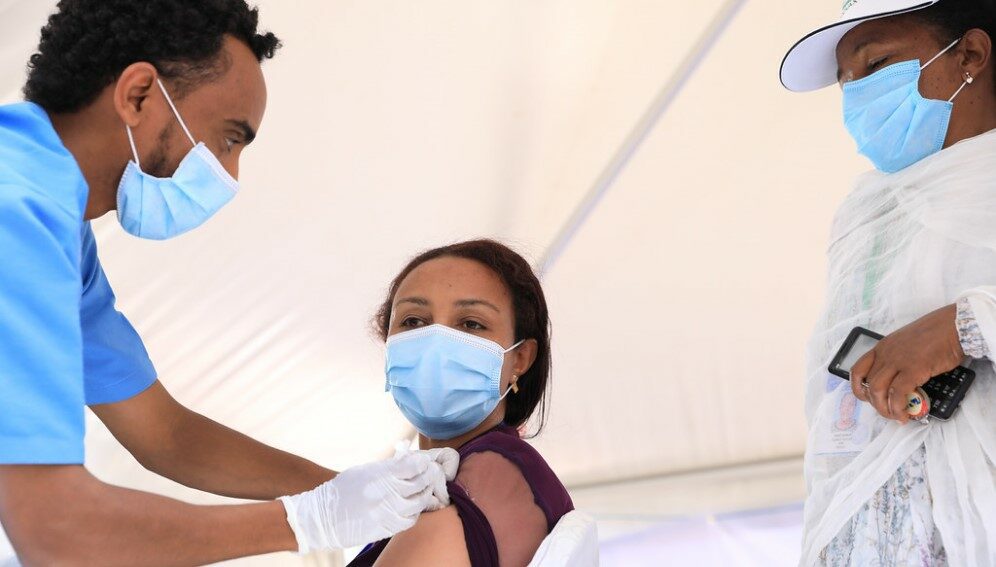
By: Royal Uche
Send to a friend
The details you provide on this page will not be used to send unsolicited email, and will not be sold to a 3rd party. See privacy policy.
[ABUJA] Africa has intensified efforts to increase COVID-19 vaccine rollout but the continent appears to be struggling, with only about 12 per cent of the population fully vaccinated to date.
At the current vaccination rate, Africa needs to have a six-fold increase if the continent is to achieve the target of 70 per cent set for the middle of this year.
To achieve this target, world leaders, African leaders and international institutions such as GAVI (the Vaccine Alliance), UNICEF and the WHO at a high-level summit held last week in Nigeria, agreed that there is a need to turn vaccines into vaccinations to achieve herd immunity before the end of 2022.
“We are on the ground with African leaders to do whatever it takes to reach each country’s goals on vaccination.”
Tedros Adhanom Ghebreyesus, WHO
The summit heard how, through COVAX, Africa is now overcoming many of the supply and delivery constraints faced last year. As of February, almost 1.2 billion doses of vaccines had been delivered to the continent, and the supply outlook for 2022 seems positive.
Now, the WHO and other partners are working day and night to address the bottlenecks that remain, according to WHO director-general Tedros Adhanom Ghebreyesus.
“We are on the ground with African leaders to do whatever it takes to reach each country’s goals on vaccination, testing and treatment because we know that achieving the set targets will not only fast track global recovery but it will help prevent the emergence of new variants,” he told the summit.
For, the WHO chief, achieving 70 per cent COVID-19 vaccination target by all countries in the world is essential to ending the pandemic as a global health emergency and driving an inclusive for global recovery.

“We have initiated the COVID-19 vaccine delivery partnership to assist government-led vaccine strategies through political engagement, technical assistance and supports like training, bringing expertise to strengthen the cold chain and logistics, deploy vaccinators, mobilise funding, strengthen data systems, engage communities, [and] plan and coordinate operations,” he added.
Ted Chaiban, global lead coordinator for COVID vaccine country readiness and delivery, told me told me during the summit that he recently visited Nigeria to support the country with its acceleration and turning vaccines into vaccination at the country level.
“What we need to do is to support each state in Nigeria to develop their own plans, which in turn mobilise each of the ministries, departments and agencies, including wards to work towards their state’s targets,” Chaiban said. “This, in turn, will lead up to the national target of reaching 70 per cent of the eligible population by June 2022, with full COVID-19 immunisation.”



From the summit, it became clearer to me that African governments need to invest more and expand our vaccination to reach the more people in the communities.
As the Zambian president, Hakainde Hichilema, said: “We must advocate for change so we are less dependent on donations. We must own our health security responsibilities and improve meaningful budgetary allocations to fight local and global emergencies like the COVID-19 pandemic… Cooperation amongst ourselves is of vital importance going forward.”
This piece was produced by SciDev.Net’s Sub-Saharan Africa English desk.


